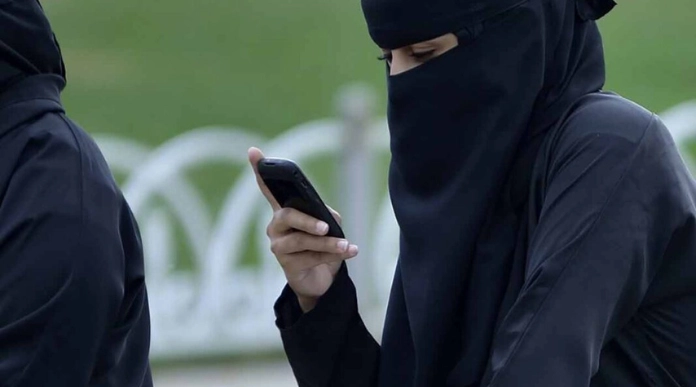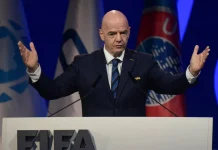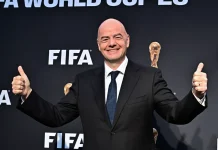Providing an opportunity for the country to host the FIFA World Cup in 2034, which is the focus of international debate. Saudi Arabia had bridged the gap in developing its infrastructure and marketing the state as a sports and tourism destination. But the biggest question remains: is it suitable to host the FIFA World Cup?
This history of crackdowns on dissent by the Saudi government goes on to question the very meaning of human rights, freedom of expression, and the integrity of an international event like the World Cup. The danger of suppressing the voice and political expression makes Saudi Arabia an unsure place for the hosting of the FIFA World Cup in 2034.
A History of Crackdowns on Dissent
Political opponents, activists, and whoever dares to speak against the government, has been constant criticism Saudi Arabia has endured for its harsh treatment. It is perhaps a badge of honor to the Saudi regime, especially under the crown prince, Mohammed bin Salman (MBS).
Since his inception, there has been an intense effort to eliminate any form of political dissident voice, and that has been accomplished through arrests, intimidation tactics, and extrajudicial killings. Over 300 political prisoners are currently detained in Saudi Arabia for expressing dissent or opposing the government.
The most common example is the assassination of journalist Jamal Khashoggi in 2018. Jamal Khashoggi was a prominent Saudi government critic who was brutally murdered at the Saudi consulate in Istanbul. It had shaken the world but brought home, in gruesome detail, just how far the Saudi government will go for silence. Khashoggi’s murder highlighted the risks attached to challenging the authorities and delivered a chilling message to activists and critics.
Suppression of Protests During the World Cup
A FIFA World Cup is more than a sporting event; it is a much-needed platform to voice out political opinions, increase awareness for social issues, and give voices to human rights concerns. World Cups and other international events have gone through protests and demonstrations throughout history to raise issues about different injustices in the host country and around the globe. Saudi Arabia ranks 170th out of 180 countries on the 2023 World Press Freedom Index, highlighting severe restrictions on free speech.
However, in Saudi Arabia, dissent is not tolerated and any form of protest during the World Cup may attract severe sanctions. The Saudi authority has often demonstrated their reluctance to tolerate criticism or public dissent. Therefore, fears are there over the security of activists, supporters, and even journalists who might take advantage of the World Cup to air criticisms over human rights abuses or political persecution within the country.
Effect on International Journalists and Media
The media uses the FIFA World Cup as an opportunity not only to inform people about the progress of the matches played but also to highlight matters surrounding the event. In previous tournaments, journalists from around the world covered the protests, human rights violations among other socio-political issues happening in the host country. Of course, this is not the case in Saudi Arabia where the freedom of the press is almost an impossibility, and journalists are restricted in the information they can release.
Saudi Arabia ranks very low in world freedom indexes concerning the press; it enforces fairly strict laws of censorship so that the media would not criticize the government or discuss sensitive issues like human rights abuses. This may greatly limit how international journalists might operate without restrictions, reporting freely from Saudi Arabia during this World Cup. Any such efforts to cover protests, political dissent, or government repression might be subject to censorship, intimidation, and possibly expulsion from the country. Since Crown Prince Mohammed bin Salman came to power in 2017, over 100 activists have been arrested or harassed for advocating human rights reforms.
Human Rights
Saudi Arabia has been an international concern regarding human rights issues for decades. The concerns have mainly been towards the treatment of women, LGBTQ+ members, religious minorities, and migrant workers. Recent reforms, which have recently allowed women to drive and enter public events, create some positive tendencies, but the situation regarding human rights in Saudi Arabia remains alarming.
84% of Saudi Arabian citizens reported that they avoid discussing political issues publicly due to fear of government reprisals (2022 Arab Barometer survey). With huge infrastructure projects pending to be undertaken for the World Cup, there is great justification for a concern that migrant workers would be prone to bad working conditions, low wages, and forced labor.
The Integrity of FIFA and World Soccer
FIFA, the governing body of international soccer, has such values as fairness, equality, and inclusion owed to the sport. In giving the World Cup to Saudi Arabia, FIFA is taking the risk of sacrificing its integrity and driving away fans who realize what football can do to bring positive change and unite people.
This begs the question: in hosting the World Cup in Saudi Arabia, is FIFA relinquishing its stance on human and ethical rights for commercial interests? While sports investing in Saudi Arabia has been doing so lately with quite numerous events and sponsorships, the organization needs to ponder whether the country’s unescapable repressive regime matches the values that football intended to reflect.
Conclusion
The poor record of human rights and the history of suppression of protests in Saudi Arabia will simply make it an unsuitable host for the FIFA World Cup in 2034. The FIFA World Cup is not merely a sporting event but rather an international platform for free expression, the bridge for cultures, and an open political forum. In a country where dissent cannot be tolerated, it stands to reason that the World Cup risks becoming an instrument for further repression rather than a celebration of unity and diversity. The issues should be weighed with great care by FIFA, considering what hosting the World Cup in such a nation entails, with such a sad record on human rights and freedom of speech.













